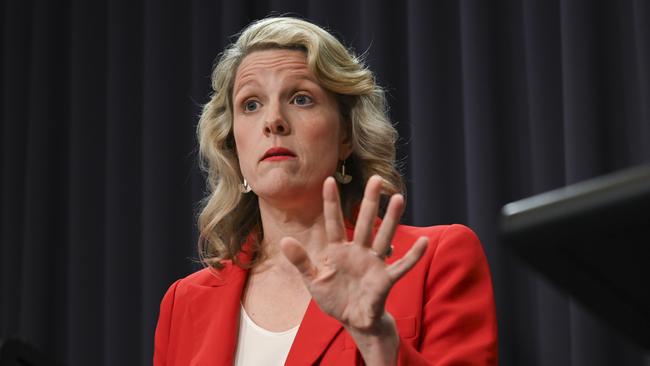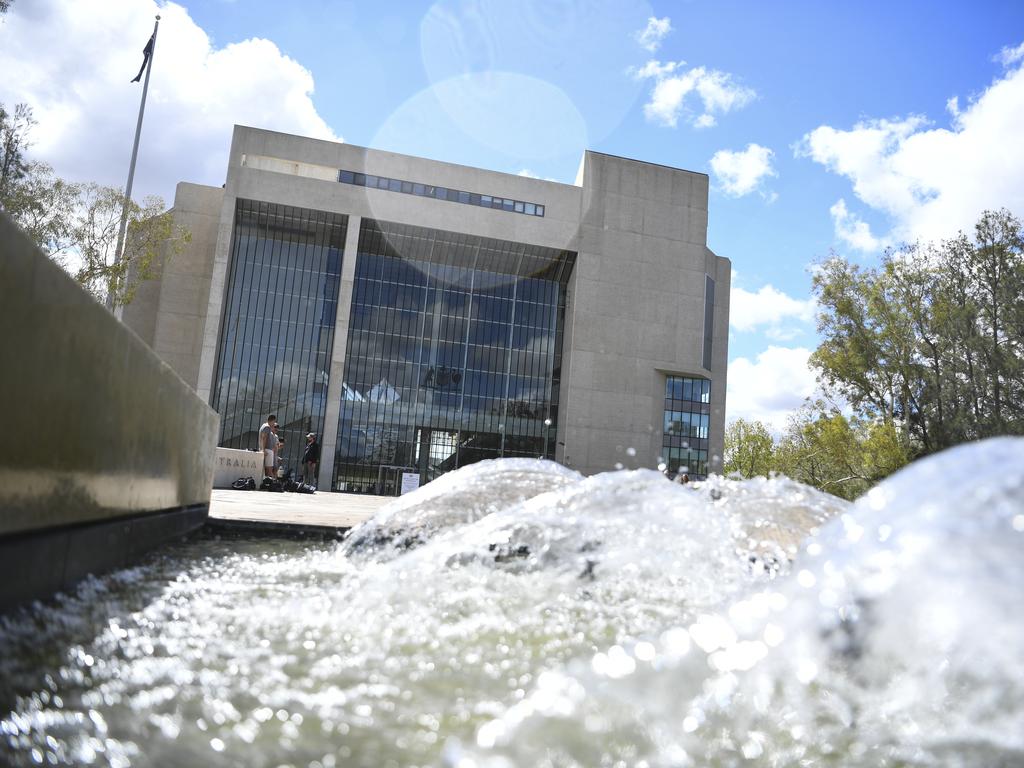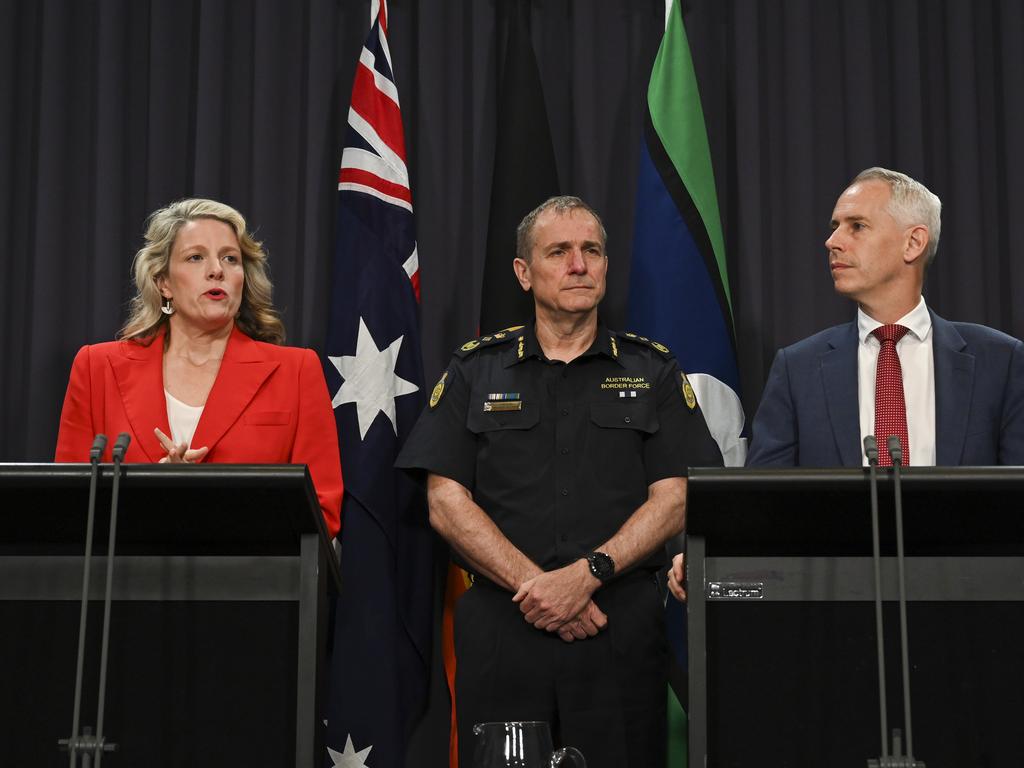Labor moves on detainee laws as High Court says dangerous non-citizens could be subject to preventive detention
Labor will introduce a new preventive detention scheme as soon as Wednesday after the High Court said some dangerous non-citizens could be subject to ongoing detention

Home Affairs Minister Clare O’Neil will introduce to parliament a “tough preventative detention regime” in the next two days after the High Court found dangerous non-citizens released into the community could be legally detained if they posed safety risks.
Australian Border Force also confirmed on Tuesday night that it was still unable to identify the location of one individual who had been released from detention but refused to comply with the requirement to wear an electronic surveillance device.
ABF deputy commissioner of regional operations Vanessa Holben told The Australian the individual was “yet to be contacted” but the ABF was taking “every reasonable step” to locate him.
“Context is critical here,” she said. “The fact is that, of the 138 affected individuals who require electronic monitoring, 133 have been fitted with devices and only one is yet to be contacted.”
Ms O’Neil said the government had now received the reasons from the High Court for its landmark decision in the NZYQ case and was “moving quickly to finalise a tough preventative detention regime” before the rise of parliament on December 7.
The High Court said some dangerous non-citizens, including sex offenders, who were released from detention could still be subject to “preventive detention” if they presented unacceptable risks to the community.
However, any assessment would need to be based on the merits of each individual case and the risk they posed to the community – not on their status as an asylum seeker who had been held in immigration detention.
Legal experts told The Australian this could make it difficult for the government to legislate any kind of blanket preventive detention scheme.
Constitutional law expert at the University of NSW, George Williams, said states had primary responsibility for preventive detention. “It may be the focus on the federal parliament for this kind of detention is misconceived,” he told The Australian.
Anne Twomey, constitutional expert and Professor Emerita at the University of Sydney, said: “To the extent that … you just do a preventive detention order in relation to all of this cohort … the High Court has clearly said no. That is not the case.”
In its full decision on the landmark NZYQ case, which has resulted in the release of 141 non-citizens from immigration detention and overturned 20 years of legal precedent, all seven High Court judges unanimously found that those released from unlawful detention did not have a “right to remain in Australia”.
The High Court clarified that non-citizens could not be held indefinitely without a reasonable chance of them being resettled elsewhere – a finding that explains the unsuccessful behind-the- scenes campaign to try to have NZYQ resettled in Bangladesh, Saudi Arabia or in one of Australia’s five eyes partners (US, UK, Canada and New Zealand).
But the court also stressed that, should circumstances change and resettlement become “practicable in the reasonably foreseeable future”, detention would again become a legal option for the government.
For this reason, the High Court decision made clear that NZYQ – a stateless Rohingya man from Myanmar who raped a 10-year-old boy but who was released from unlawful detention – was still “vulnerable to removal under Section 198 of the Migration Act”.
Professor Williams, told The Australian it was a “very clear decision”.
“The High Court has said you basically can’t detain these people as asylum seekers once the prospect of removal has gone,” he said. “So the question is: when is it clear to detain these people?
“If … another country could take them, then they could be detained again at that point.”
Refugee Legal executive director David Manne said that the High Court decision meant it was “unlawful and unconstitutional to indefinitely detain someone where there is no real prospect of removal from Australia”. But he also said the High Court’s findings on “preventive detention” meant there was no basis for “treating refugees who have offended differently from anyone else in the community who has offended”.
“Australia already has laws to manage serious risk to the community of reoffending in specific circumstances. There is no need for new laws in this area,” he said.
National Justice Project chief executive George Newhouse described the High Court’s findings as an “important decision”.
While there has been conjecture about compensation claims from detainees, Mr Newhouse said it was unlikely NZYQ would be entitled to any compensation for wrongful imprisonment prior to May 30 – the date from which the High Court found his detention to be unlawful.







To join the conversation, please log in. Don't have an account? Register
Join the conversation, you are commenting as Logout